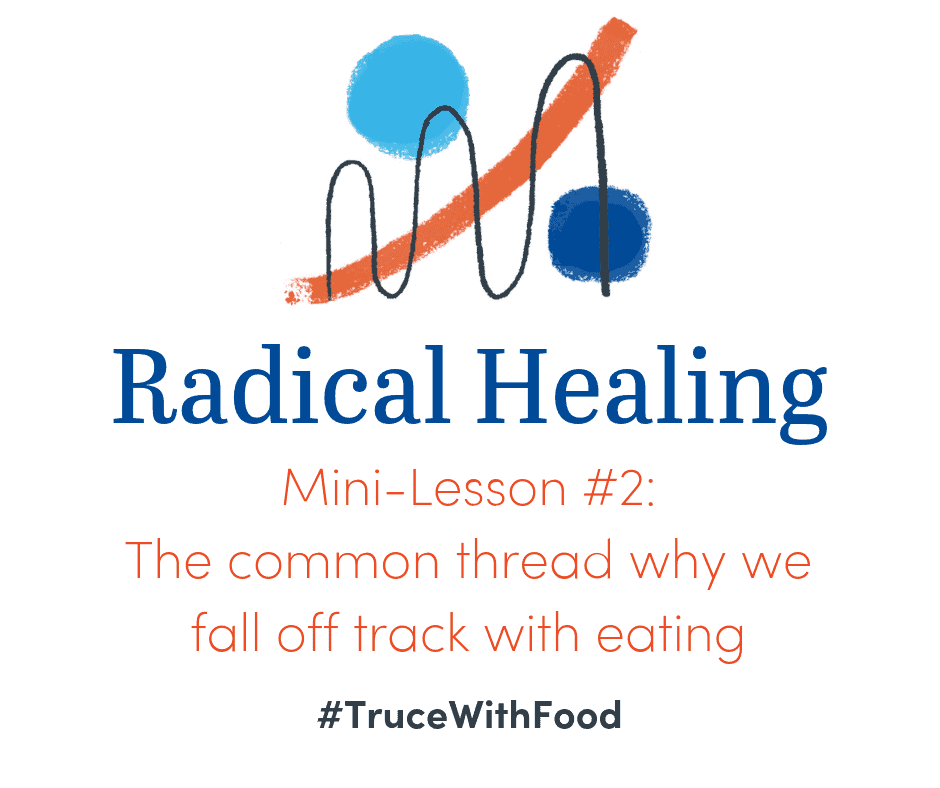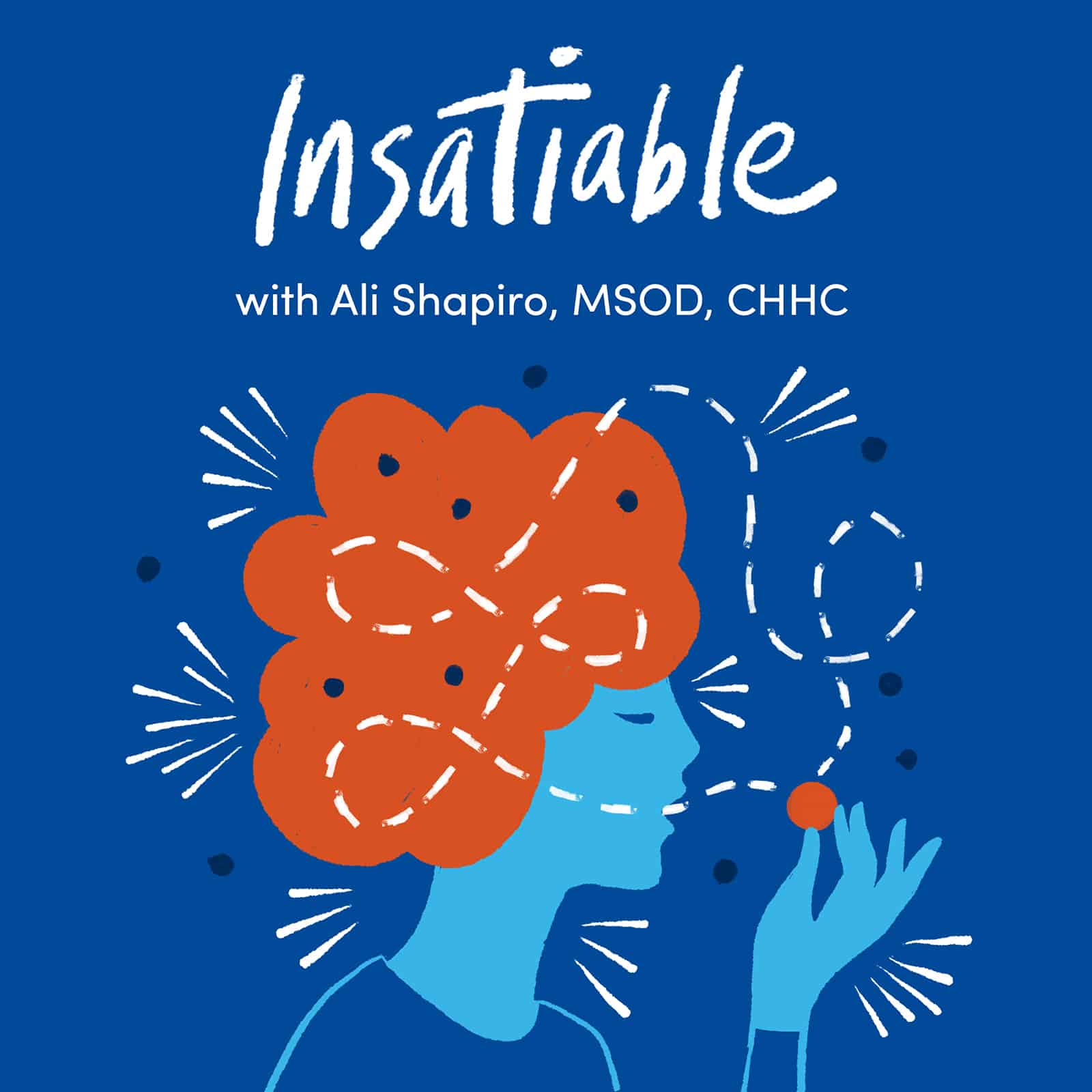Last week, I discussed the difference between starting and stopping habits And if you want to stop falling off track with your eating, you must acknowledge the story that knocks you off the client described “balance beam of healthy eating.”
Often, I hear from clients, “Weight Watchers worked for me when I was on the program. But then I fell off.” Or “I felt amazing on Whole30 and did it a couple times. But I can’t even motivate myself to stay on past Day 9 anymore.”
I dig a little deeper and ask, “What happened in your life around when you stopped clocking in at WW?” or “What feels really unsettled in your life now and drained your energy?”
They realize they stopped following Weight Watchers when a parent got sick. Or they don’t have “motivation” for a Whole30 because all energy is tied up in work, kids, and not collapsing in our hunger games culture.
The common thread why people fall off track with eating is…(drum roll)… Real Life!
Here’s the great news: real life doesn’t have to conflict with healthy eating and our goals. And you’re not missing some willpower trick or better plan.
And, the fine print is: it’s not real life we have to struggle with or wait to settle down. It’s rewriting our story about how we have to be when real life happens.
In my twelve years of client work and research, I’ve come to see “real life” as code for feeling vulnerable. We feel vulnerable when we aren’t super confident like how to eat for our individual bodies or when we feel like a beginner at dating or when we have baggage like with in-laws or people we work with.
It’s not vulnerability itself. It’s the story about what’s psychologically safe and unsafe. This is why we tend to think in black and white, as it feels like there is no room for error. And your mind does this for good reason.
Our stories usually originate in childhood. Then, we had limited choices when we felt vulnerable. From how to handle the chaos at home to being bullied, we learned brilliant ways to protect ourselves.
As a result, when we believe we’re being “good” in our story, we assume we’re working towards the safety of belonging, recognition and confidence. We may not think “I’m being good,” but we do think we are being hard-working, successful or insert whatever identity you like about yourself.
When we’re “bad,” (or falling behind or failing), we assume we’re risking rejection, invisibility and failure.
To start to connect your own “falling off track” with your story, think back to the times you “fell off” your own eating:
What changed in your life? What vulnerable feeling did “real life” trigger in you? What did you assume you had to do to get through it?
I’ll be back next week to show you the 3 stress patterns that originally protected you in brilliant ways, yet as an adult, made these “real life” events control you and your eating.







Leave a Reply